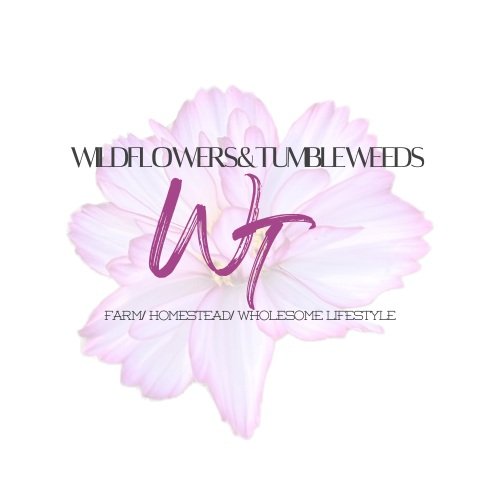Homesteading Why’s… Is this Your Season to loosen the Reins or Tighten Them up?
Homesteading why’s. What does your health have to do with it?
LIving a “simple” life is not always the easy life. Wouldn’t it be easier to just buy the processed foods that are on the shelf in the grocery store and eat and live like the majority of the country does? The time that it takes to grow your own food, to preserve it and prepare it. I sometimes think that our whole life revolves around food! Well it kinda does.
Maybe that’s nourishment, maybe that’s food for our soul, maybe they’re one in the same. Growing your own food puts a whole different connection to what we eat and how it heals our body and soul. Connecting us to nature and the earth. Understanding that God has a plan for each of us and accepting the challenges.
Accepting the challenges and the hard work to make it possible to nourish our bodies in a way that builds and heals, rather than fills us with harmful ingredients and pesticides. Let’s just say it’s not for the faint of heart. Since I left my full time job a few years back, I have never worked harder in my life! Growing, preserving, learning, managing and physical labor.
My daughter and I were having a conversation the other day about what makes people stick with this way of life. We have watched many that seem like they have strong opinions, loosing up about their convictions. Especially when they have a passel of kids to feed! Our conclusion was that it is really hard work, and it takes so much time and effort to feed everyone and keep up with all the activities. It is a full time job, people are busy and most need to go to work outside the home.
There are seasons in life, some busier than others. Sometimes we have to make choices about how to manage our time to accomplish what we need to do. That might mean buying the can of tomatoes or box of pasta rather than canning the tomatoes for the year from the garden or making the fresh pasta with ingredients that you trust. Maybe you can choose to spend the extra to buy the ones you know are the better choice for your health.
For me, health started our food and homestead journey. Starting with some pretty severe food allergies that popped up out of nowhere. As I now know can happen with the onset of autoimmune disorders. Which in turn can come from a life of eating foods and living with chemicals around us that can harm our bodies.
Until you reach that moment in life when its a do or die situation. When your body actually tells you “No More!” Until then you may or may not choose that box of pasta depending on the day. Depending on your schedule and your season in life.
Seasons change and morph into the next. If you are in one of those seasons where it’s hard to find the motivation and time, hopefully you can choose healthy. Choose good ingredients, and foods that heal your body rather than harm. Eat Clean, and get through and know that the next season will come and you can morph back into what you know helps your body and soul. Do the research on what goes into commercially grown foods and find a small farmer if you can. Maybe you can’t nail it this season, but maybe next season you do better. Your body will thank you later!
My Top 5 Garden Go-to’s to Save Time
Gardening can be very time-consuming, especially if you're just starting out, yet it can be very therapeutic and rewarding. This is a list of my top 5 go-to’s for saving time in the garden.
Gardening can be very time-consuming, especially if you're just starting out, yet it can be very therapeutic and rewarding. Sometimes the overwhelm wins out on the therapy of spending the time on what makes us feel whole inside because we let ourselves be swayed by the restriction of time and excuses.
Instead, spend that time thinking of it as therapy. It has been proven that grading reduces stress. So let’s start with a few ways to keep it less stressful. With a few tips and tricks, you can make your garden flourish without spending all of your time tending to it. Here are my top 5 garden go-to's that will help solve your time dilemma:
Drip irrigation
Drip irrigation is a system of watering plants that involves delivering water directly to the plant's root system. This method is more efficient than traditional sprinkler systems, as it reduces water waste and helps to prevent fungal growth. By installing a drip irrigation system in your garden, you'll be able to reduce the amount of time spent watering your plants, while also conserving water.
The reason I list this first is because in the planning process, this is the first step. If you are using weed cloth to plant in or mulching, your drip lines need to be under the cloth or mulch to be more successful. Side note to this, add a timer to your water system. Your plants will thrive, the consistency does a lot for the root system and growth, plus you don’t have to panic about setting that sprinkler or moving hoses. This was a game changer to my gardening journey.
2. Mulching
Mulching is the process of covering your soil with a layer of organic material such as leaves, straw, or wood chips. It helps to retain moisture in the soil, prevent weed growth, and regulate soil temperature. By mulching your garden, you'll be able to reduce the frequency of watering and weeding, saving you time and energy.
My favorite mulch is wood chips. As the chips break down over the seasons they help build better soil that is less compact. Basically adding compost as the mulch decays.
We use a combination of mulching and weed cloth. If you have an abundance of weeds in your area, sometimes mulching is not enough. We have Morning Glory (Bind Weed) here and it comes right through mulch and sometimes through the weedcloth. We opted to plant most things in weed cloth which hopefully will slow down the Morning Glory eventually and we mulch areas like dahlias and potatoes that don’t thrive in weed cloth.
Also be sure what your mulching with does not contain seeds or seed heads. This can create a huge headache on it’s own.
3. Companion planting
Companion planting involves planting two or more crops together that have a mutually beneficial relationship. For example, planting marigolds alongside tomatoes can help to repel pests and improve soil quality. By utilizing companion planting in your garden, you'll be able to reduce the need for pesticides and fertilizers, saving you time and money.
You can find a printable Companion Planting Guide in our Resource library to get ideas of what companions would be helpful to you. Our resource library has other gardening helps to browse through as well.
4. Raised beds
Raised beds are a gardening technique that involves planting in soil that is higher than the surrounding ground. This method provides better drainage, reduces soil compaction, and allows for easier access to the plants. By using raised beds in your garden, you'll be able to save time by reducing the need for digging and weeding, while also improving plant growth.
We have just recently started adding raised beds to our garden areas. It can be a big investment and feel pretty permanent but the advantages take the win and they look so finished and bring a different element to your gardens. Mulching in a raised bed is super simple and makes them even easier to care for.
5. Composting
Composting is the process of breaking down organic materials such as food waste, leaves, and grass clippings into nutrient-rich soil. Using compost as a natural fertilizer can help to reduce the need for chemical fertilizers, saving you time and money plus the health benefits of getting away from those chemicals.
We have really gotten into our composting this year! Buying compost on a large scale in our area proved to be very difficult and costly. We spent about 4000$ on this last year alone. Which mentally made me ill because we raise beef. Why on earth should I not make my own compost! We had to get a few things figured out before we could make that happen. On a smaller scale it proves to be much simpler, start with food and garden scraps, some leaves and a pile that you can water and turn and you have a good start to a system! You can find more info on composting in our Resource Library.
By utilizing these five garden go-to's, you'll be able to save time and energy in your garden while still achieving a beautiful and bountiful harvest. The work is enjoyable and when you get a chance to just admire your efforts, that feels nice!
Happy Gardening friends!










